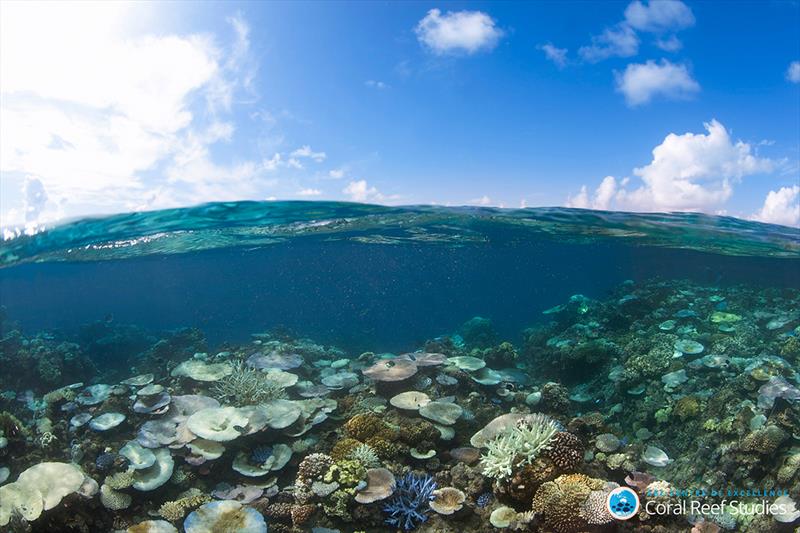
Too early to tell what summer will mean for the Great Barrier Reef
by GBRMPA 30 Oct 2018 04:42 UTC

Climate induced coral bleaching events are the greatest threat to coral reefs. As shown here, there is extensive bleaching of hard and soft corals at Moore Reef following sustained heat stress in March 2017 on Great Barrier Reef © ARC CoE for Coral Reef Studies / Ciemon Caballes
Initial predictions of a summer heatwave and what this means for the Great Barrier Reef will be the focus of an annual pre-summer workshop run by the Great Barrier Reef Marine Park Authority next month.
Since about 2010, each year Australia's lead management agency for the Reef has convened a pre-summer workshop with marine managers, scientists and experts.
It looks at predictions by the Bureau of Meteorology and National Oceanic and Atmospheric Administration, along with other available information, to understand what might happen over summer.
This year a concurrent workshop will also look at work done on integrated monitoring to understand how we measure environmental pressures like bleaching.
Great Barrier Reef Marine Park Authority chief scientist Dr David Wachenfeld said initial indications were a concern, but it was too early to tell what would unfold over this summer.
"Conditions can change closer to summer, and over summer as well — for example, if there is rain or cloudy conditions. Temperatures also tend to be hottest in February," he said.
"Right now it is too early to say what this summer will mean for the Reef, but the growing chance of an El Niño event raises concerns of elevated temperatures and heatwave conditions.
"As usual over summer we will be keeping a close eye on the Reef — including using the scientific data and modelling, as well as drawing on information from in-water and aerial observations, the Eye on the Reef App and observations provided by marine park users."
Dr Wachenfeld said the pre-summer check-up would consider current observations and forecast conditions for the coming summer, which will inform management actions.
"The pre-summer workshop enables participants to share information and prepare for any weather-related impacts, discuss forecasts and predictions for summer and assess risks," he said.
"Year-round there's already a network of researchers, rangers and citizen scientists out in the field who supply us with information about Reef health.
"If bleaching occurs we will work with our partners to gather information in the field — given the Reef is the size of Italy this will likely involve getting that information from a range of sources."
The Reef Joint Field Management Program undertakes reef health checks throughout the Marine Park. In 2017-18 about 1980 in-waters surveys were completed across 189 reefs, which helps us understand current conditions.
Australian Institute of Marine Science (AIMS) coral expert Dr Neal Cantin said AIMS research teams would monitor the Reef closely as summer
progressed.
"We will be watching all of the ocean observing systems closely in December and January which give us real-time temperature conditions along the length of the Great Barrier Reef, to determine the risk of bleaching this year."
Dr Wachenfeld said climate change was the biggest threat to coral reefs worldwide, and urgent global action was needed to address climate change, along with local actions in the Marine Park to build resilience.